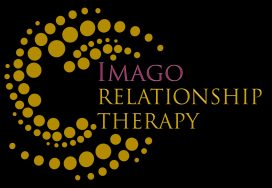I was listening to a news program the other day and was shocked by how many billions of dollars we spend on war. Then I became very curious. I wondered: how much do we spend on building peace?
Our relationships are getting worse because we are more invested in fighting each other and less invested in building peace with each other.
There are behaviors that, at a certain point in time, become unsustainable; they don’t work. We can’t sustain our relationships by fighting, holding on to resentments, being mean, blaming, ignoring each other and denial. These behaviors are not life-producing enough.
What’s interesting about 12-step programs that is helpful to the process of waking up is that, when it comes to a life of addiction or alcoholism, many folks understand that if this is not taken care of, you could die!
But for some reason, we are not quite allowing ourselves, the way we should, to take that same knowledge and apply it to our relationships. Trying to sustain our relationships by waging rage, criticism and anger may not be that scary to some folks, but it should be. Think of how tumultuous it is when a relationship breaks up. Not to mention road rage! I’ve watched folks tear down 95 chasing someone for whatever reason. It’s quite frightening.
Anger, resentments, jealousy, rage etc., are characteristics of what is known in 12-step programs as the “dry-drunk syndrome” and the “dry-drunk syndrome” can cause tremendous strain in our minds and relationships. The toxic, dangerous and perhaps deadly characterization of the “dry-drunk” is:
1. resentment toward family and friends,
2. anger and negativity around recovery,
3. depression and fear of relapse,
4. jealously of friends who are not struggling with addiction,
5. romanticizing drinking daily,
6. self-obsession,
7. replacing addiction with new addictions/vices, i.e., gambling, sex, relationships, internet trolling, food and rage. Rage that a person feels as a non-drinker.
Have you ever done something in a rage that could have or has had dangerous, or even deadly consequences? The “dry drunk syndrome” can turn anybody, even a non-drinker, into an unpleasant person. Do not think that the non-drinker is the only one affected. The “dry drunk syndrome” can have crushing and devastating effects on everyone around him or her.
What to do?
The first step is to surrender the dysfunctional and old idea(s) that the problems you are having will just magically go away. Will-power (which is thought/ego) doesn’t work. Action is the key word. Second, find a safe way(s) to deal with the tsunami of buried emotional hurt that probably goes back decades. I don’t think there’s one way to prepare yourself for being bombarded by the flood of unresolved personal and relational issues that you have been procrastinating on for years but Imago Relationship Therapy gets to the crux of these issues in a healing and transformative way. The mind is not designed to cope with all that stress. Third, do something physical: run, kickboxing, Zumba, work out to help deal with the depression, anxiety and red tsunami’s of rage. Fourth, a serious practice of meditation is crucial. Anger and rage are nothing more than neutral energy, thoughts, and flickers of consciousness, and when observed from a meditative standpoint, they dissolve like Stevia in a cheap cup of coffee.
Five, read books.
Six, write.
There is no easier, softer way when it comes to saving one’s life from addiction. It’s all or nothing! No gray area. I believe the same is true for the non-drinking person who is trying to save their life, dignity, marriage, job, career or significant love relationship. It’s a question of building peace and character one-day-at-time or building conflict and chaos one-day-at-a-time.
In love and light,

Paula





